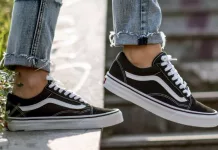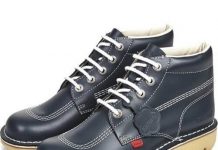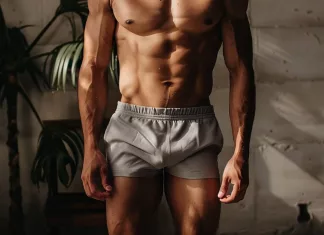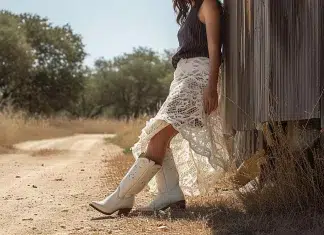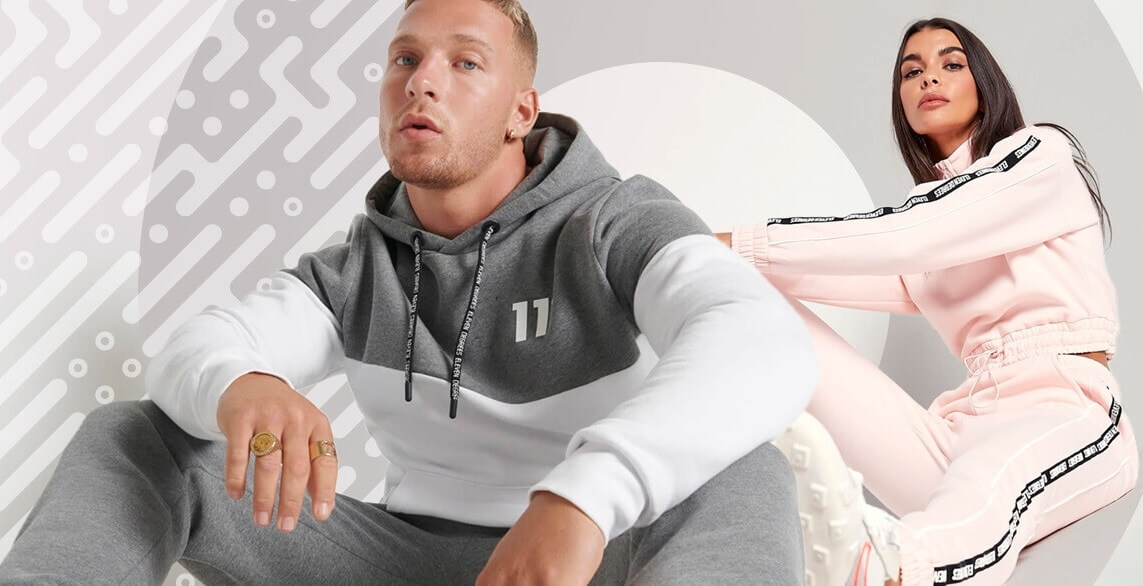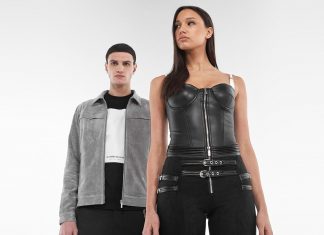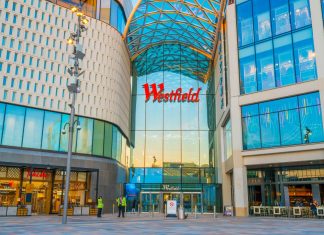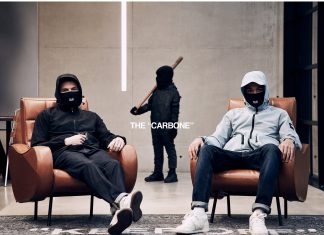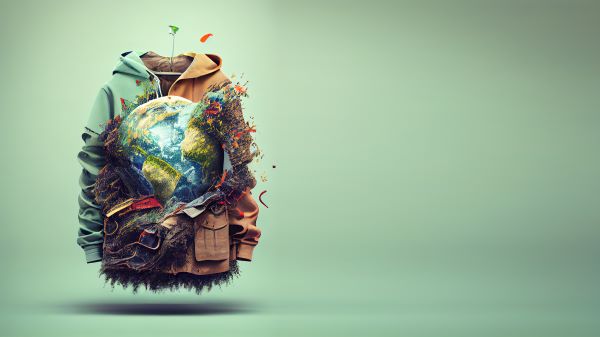
First Published: 9th May 2023, written by Olivia Doonan | Last Updated on 13th September 2023 | Reviewed and Edited by Chloe Safilo
As we enter into another change of season and the potential to enhance the wardrobe with those beautiful summer clothes that have been hidden away. We now have, as the consumer, a choice in not just what we buy, but how it was made. And finding sustainable and ethical fashion brands is not as hard as you would imagine.
With the inevitable small-scale companies leading the way in environmentally friendly clothing and packaging, we are now looking at the sustainable luxury fashion brands like Gucci, Yves Saint Laurent and Louis Vuitton to step up to the plate. The demand is increasing for designer clothing that is made from recycled fabrics or natural materials, that are sustainably sourced, manufactured, shipped and packaged.
The era of the fast fashion industry is coming to an end. Most consumers are now conscious of the environmental footprint in textiles manufacturing, focusing on recycled, reused, upcycled apparel. Eco fashion zero waste business models are in demand.
What Is Fashion Doing For The Environment
The fashion industry has long been criticized for its negative environmental impact. From the use of toxic chemicals in textile production to excessive waste and carbon emissions in the supply chain, fashion brands have contributed significantly to environmental degradation. However, in recent years, there has been a growing awareness among consumers and fashion labels about well being and the need for sustainable practices.
Many fashion brands are now taking steps to reduce their carbon footprint and environmental impact. For instance, some companies use eco-friendly raw materials such as organic cotton, recycled polyester, natural dyes or other biodegradable fibres that require less water and energy during design and production. Others are investing in renewable energy sources like solar or wind power to reduce carbon emissions.
Moreover, some brands have adopted circular business models that aim at reducing waste by recycling old clothes into new products or repurposing them into something else entirely. This approach reduces landfill waste and helps conserve natural resources by extending the life cycle of clothing items beyond a single use. These efforts show that fashion can be stylish and sustainable with proper management and consumer education.
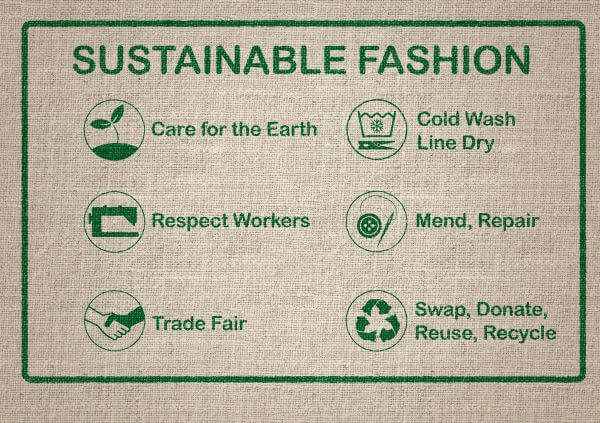
How Do Fashion Brands Reduce Carbon Emissions
Fashion brands are starting to take responsibility for their impact on the environment. They are reducing carbon emissions by using sustainable materials in the fashion production process. This includes fabrics made from recycled materials, organic cotton, and hemp.
Another way fashion brands are reducing carbon emissions is by implementing more efficient manufacturing processes. They are investing in renewable energy sources such as solar or wind power, which reduces their reliance on fossil fuels. Additionally, some companies have started using 3D printing technology to reduce waste and reduce transportation costs.
Finally, instead of producing new clothing items every season, they encourage customers to repair and upcycle old garments or buy second-hand clothes. By extending the life cycle of clothing items, fewer resources are needed for production, and less waste ends up in landfills.
Sustainability has become a buzzword in the fashion industry over recent years as consumers demand more eco-friendly options from their favourite brands. While there’s still much work left to be done to reduce the environmental impact of fast fashion, these efforts show that progress can be made with commitment and innovation from both companies and consumers alike.
Top Sustainable and Eco-Friendly Fashion Brands
Patagonia is a well-known sustainable fashion brand leading the way in eco-friendly clothing since 1973. Their mission is to build the best product, cause no unnecessary harm, and use business to inspire and implement solutions to the environmental crisis. They use organic cotton, recycled polyester, and other sustainable materials in their products.
Reformation are committed to using sustainable fabrics such as Tencel lyocell, which uses less water than cotton during production. Additionally, they have implemented practices such as using renewable energy sources in their factories and reducing waste through recycling programs.
Eileen Fisher is focusing on ethical manufacturing processes and minimizing environmental impact. They use organic cotton, linen made from flax grown without synthetic fertilizers or pesticides, and recycled cashmere in their clothing lines. Moreover, they have launched initiatives like “Renew,” where customers can bring back gently worn Eileen Fisher items for resale or repurposing instead of throwing them away.
Stella McCartney is one of the luxury brands that has long advocated for a more eco-friendly and sustainable clothing range. Using biodegradable materials is her ultimate goal, but it is proving a challenge in its longevity for the consumer. Once that kind of technology has been developed to increase the designer and consumers’ needs, it will be in place for years to come.
Levi’s has also been using the recycling model in manufacturing its denim products for some time now. However, it is in their manufacturing process where they strive for ultimate sustainable brand status as they plan to reduce their water usage by 80% using the Water<Less technique and reduce their greenhouse gas emissions by 25%.
Adidas is one of the world’s leading sportswear manufacturers and its business model has endeavoured to reduce water usage by at least 20% as well as overseeing fairer labour practices for overseas staff.
As you can imagine, it is the smaller and sometimes less well-known designers that are leading the way over luxury brands in sustainable clothing, with companies like Mudjeans, Lucy & Yak and Plant-Faced Clothing showing the giants in the industry how we can all make a change in how we dress without reducing the quality and quantity of what we choose to wear.
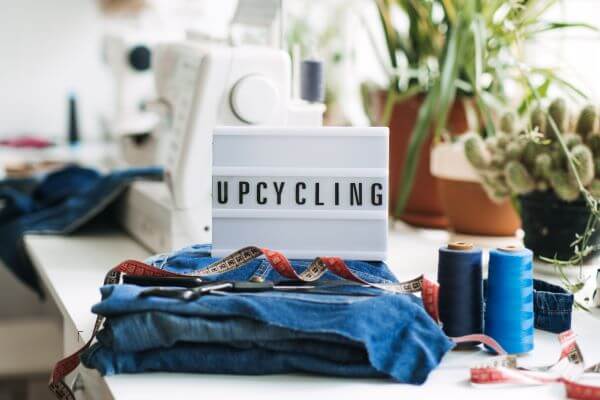
What Is The Future For Sustainable Fashion Brands
Sustainable fashion companies are gaining more attention and popularity as consumers become increasingly aware of the environmental impact of fast fashion. As a result, these brands are likely to grow in the future. With new technologies and innovations emerging, fashion sustainability can continue to evolve and improve.
One of the ethical practices and fashion trends that is expected to grow in the sustainable fashion industry is circularity. This means designing products with a closed-loop system in mind, where materials can be easily recycled or reused at the end of their life cycle. Additionally, there will likely be an increased eco friendly focus on transparency within supply chains and production processes.
Another potential development for sustainable fashion is using alternative and innovative materials, such as plant-based fabrics or biodegradable textiles. These options have less harmful environmental impacts than traditional synthetic materials like polyester or nylon. As technology advances, it may become more accessible for designers and manufacturers to incorporate these materials into their socially responsible collections.
Overall, while there may still be challenges facing sustainable fashion brands, such as higher costs and limited availability of eco-friendly resources, this movement towards more environmentally responsible clothing will only continue to gain momentum in the coming years.
In Conclusion
The emphasis on not just what the designers are making but how it is made gives us, the consumer, much more choice in the traceability of every garment, show, or accessory we buy. The positive impact on the environment, coupled with the increase in welfare standards of the workforce, and social responsibility will increase not just the profits for the designer brands but the ability for us to live in a safer and cleaner world.







